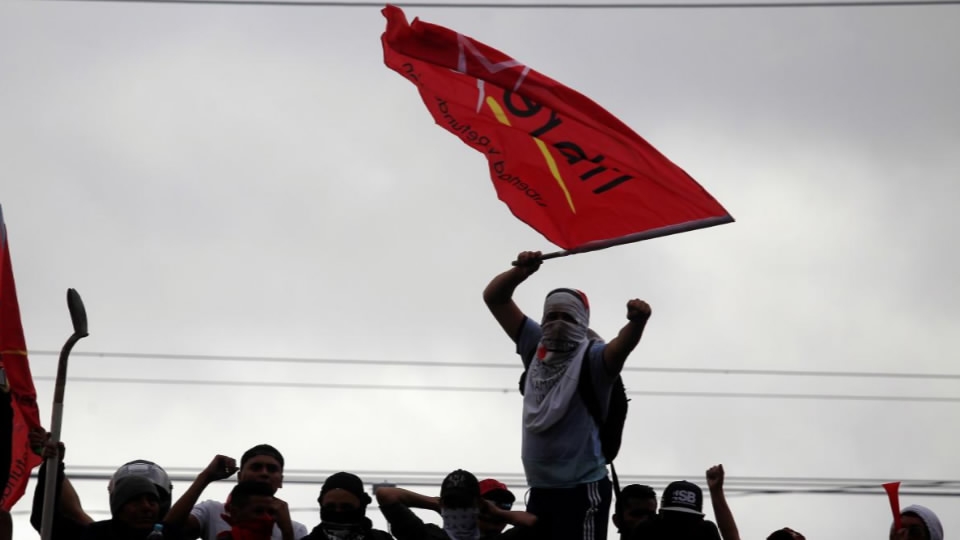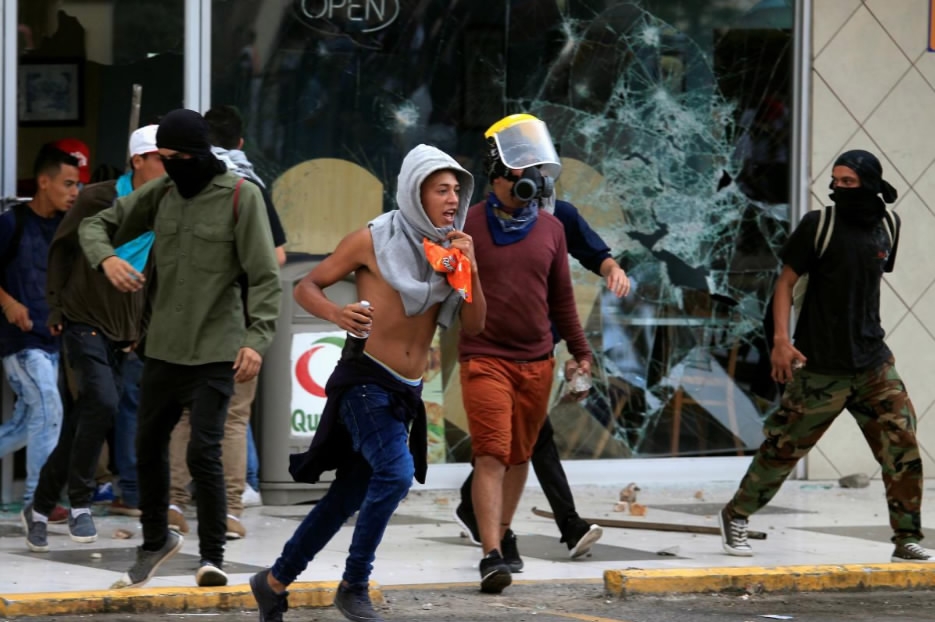
Politics
17:48, 01-Dec-2017
Honduran vote count enters fifth day with protests escalating
CGTN

Honduras moved into a fifth day of political limbo on Friday, with a long-delayed presidential vote count that has sparked unrest amid opposition accusations of electoral fraud likely to take up to two more days before yielding a winner.
International concern has steadily grown about the electoral crisis in the Central American country, which also suffers from widespread poverty, drug gangs, and one of the world's highest murder rates.
President Juan Orlando Hernandez began stretching a slim lead against his rival Salvador Nasralla on Thursday as the vote count ran in his favor, maintaining a reversal in the trend that began after a 36-hour delay halted the process on Monday.

Protesters took to the streets after a delay in the vote count for the presidential election in Tegucigalpa, Honduras, November 30, 2017. /Reuters Photo
Protesters took to the streets after a delay in the vote count for the presidential election in Tegucigalpa, Honduras, November 30, 2017. /Reuters Photo
Until then, TV star Nasralla had held a five-point lead with over half the ballots counted, and the sudden change in direction in Hernandez's favor after the restart sparked clashes between police and protesters, injuring at least 11 people.
Late on Thursday, David Matamoros, the top electoral tribunal official, heeded calls from international election observers and Honduras' top business group, and said the tribunal would hand-count some 1,031 outstanding ballots, or roughly six percent of the total, that had irregularities.
That fresh count would be completed in up to two days, and would allow the tribunal to declare a definitive winner with 100 percent of ballots counted, Matamoros said.
With the regular ballot count completed, Hernandez, of the center-right National Party, had a lead of fewer than 50,000 votes over his centrist rival.

A policeman helps an injured pedestrian as supporters of Salvador Nasralla clash with the police during a protest caused by the delayed vote count for the presidential election in Tegucigalpa, Honduras ,November 30, 2017. /Reuters Photo
A policeman helps an injured pedestrian as supporters of Salvador Nasralla clash with the police during a protest caused by the delayed vote count for the presidential election in Tegucigalpa, Honduras ,November 30, 2017. /Reuters Photo
Luis Larach, the president of the powerful business lobby COHEP, told Reuters that given the slim, 1.5-percentage point difference between the candidates, the hand-count of irregular ballots would be crucial in deciding the winner.
"For me, it's still up in the air," he said.
Both Hernandez and Nasralla, a television game show host allied with leftists, claimed victory after Sunday's election, and the challenger has said he will not accept the tribunal’s result because of doubts over the counting process.
Leading a center-left alliance, 64-year-old Nasralla is one of Honduras' best-known faces and is backed by former President Manuel Zelaya, a leftist ousted in a coup in 2009 after he proposed a referendum on his re-election.
Zelaya weighed in on the debate on Thursday in a letter in which he accused the tribunal of "electoral crimes" on behalf of the center-right Hernandez, who himself was standing for re-election enabled by a 2015 contentious Supreme Court ruling.
One of the four magistrates on the electoral tribunal on Thursday flagged "serious doubts" about the process.
The Organization of American States (OAS) appeared to have salvaged the credibility of the election on Wednesday by eliciting signed statements from both candidates vowing to respect the final result once disputed votes had been checked.

A supporter of Salvador Nasralla is pictured during a clash with riot police as supporters wait for official presidential election results in Tegucigalpa, Honduras, November 30, 2017. /Reuters Photo
A supporter of Salvador Nasralla is pictured during a clash with riot police as supporters wait for official presidential election results in Tegucigalpa, Honduras, November 30, 2017. /Reuters Photo
But a few hours later Nasralla rejected the OAS accord, saying his opponents were trying to rob him. He urged supporters to take to the streets in protest.
There were violent protests across the country. In the city of La Ceiba, demonstrators set up barricades and burned tires across a bridge and blocked at least two other motorways, while various highway toll booths were set alight.
Questions over the process have led to allegations by the opposition that Hernandez may have influenced the tribunal. The tribunal has blamed the problems on technical glitches.
Ahead of the election, opinion polls indicated that Hernandez was favored to win the vote in the Central American country of more than nine million people.
Source(s): Reuters

SITEMAP
Copyright © 2018 CGTN. Beijing ICP prepared NO.16065310-3
Copyright © 2018 CGTN. Beijing ICP prepared NO.16065310-3